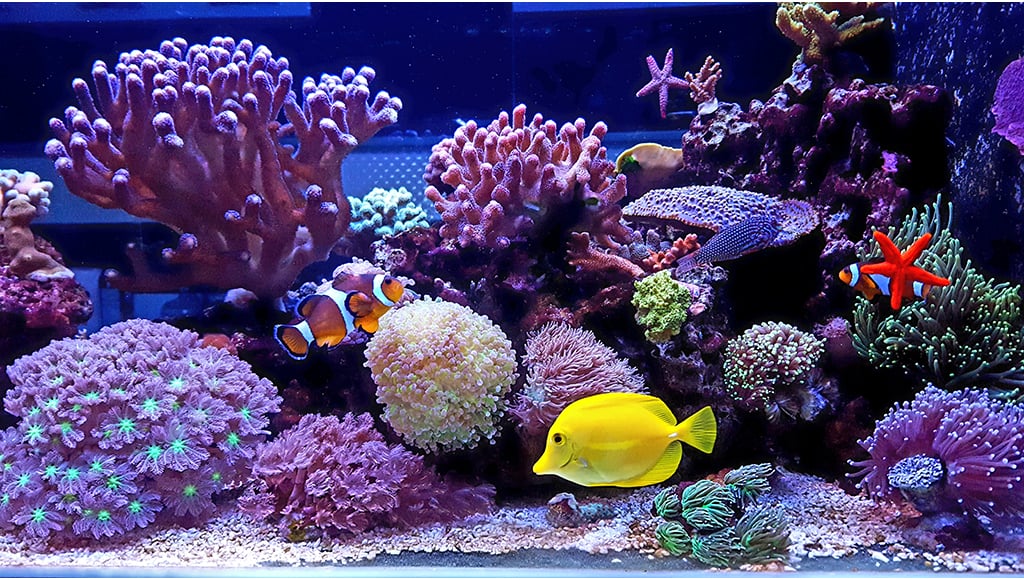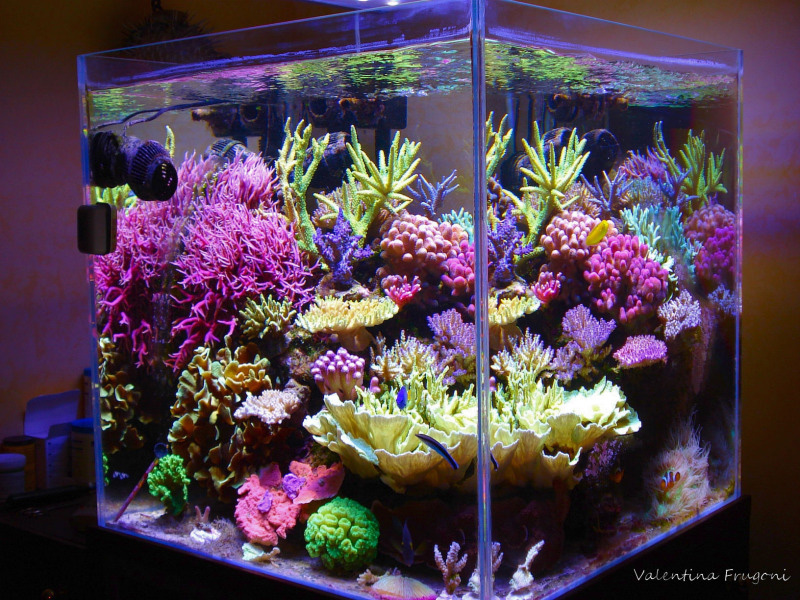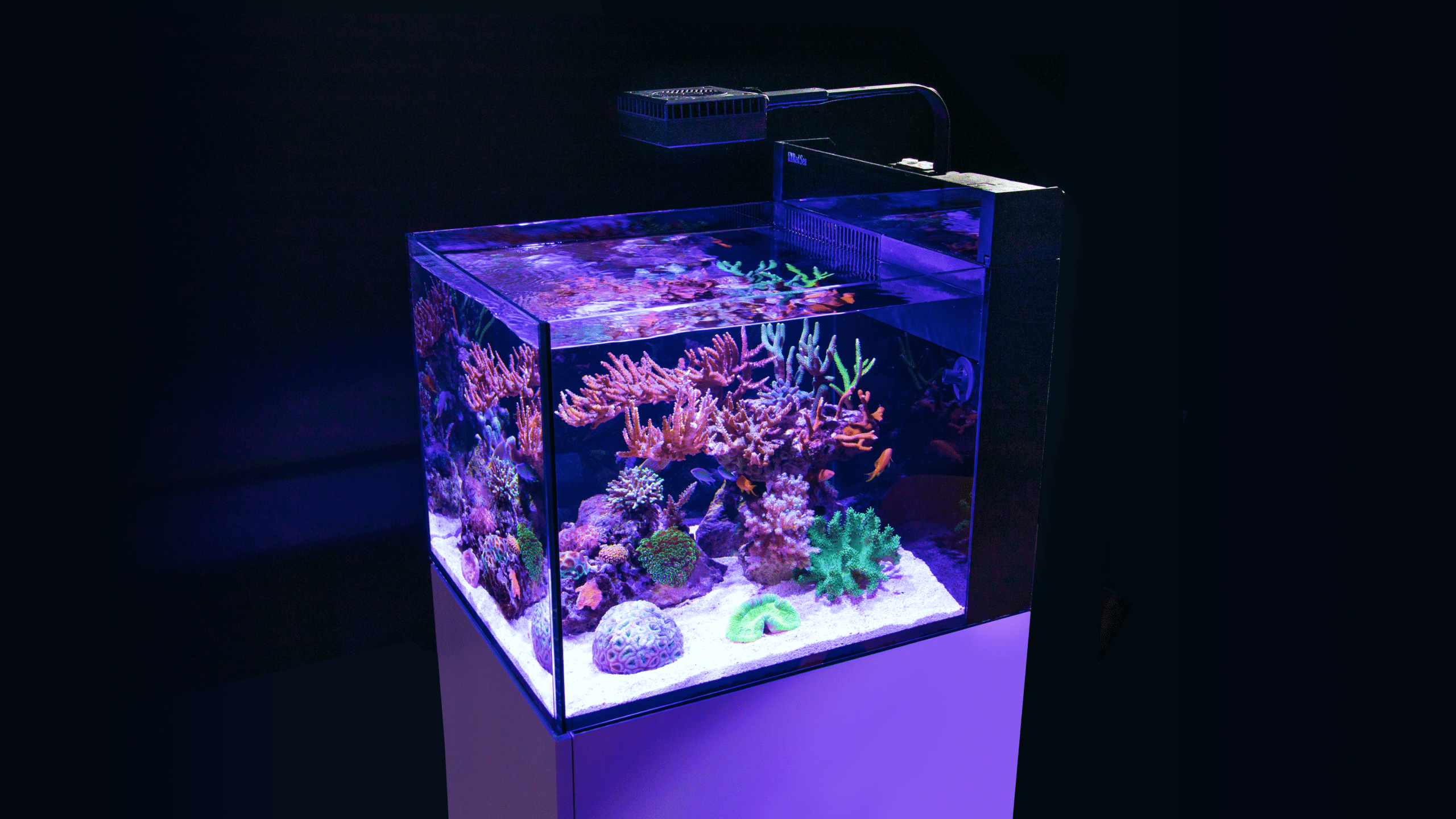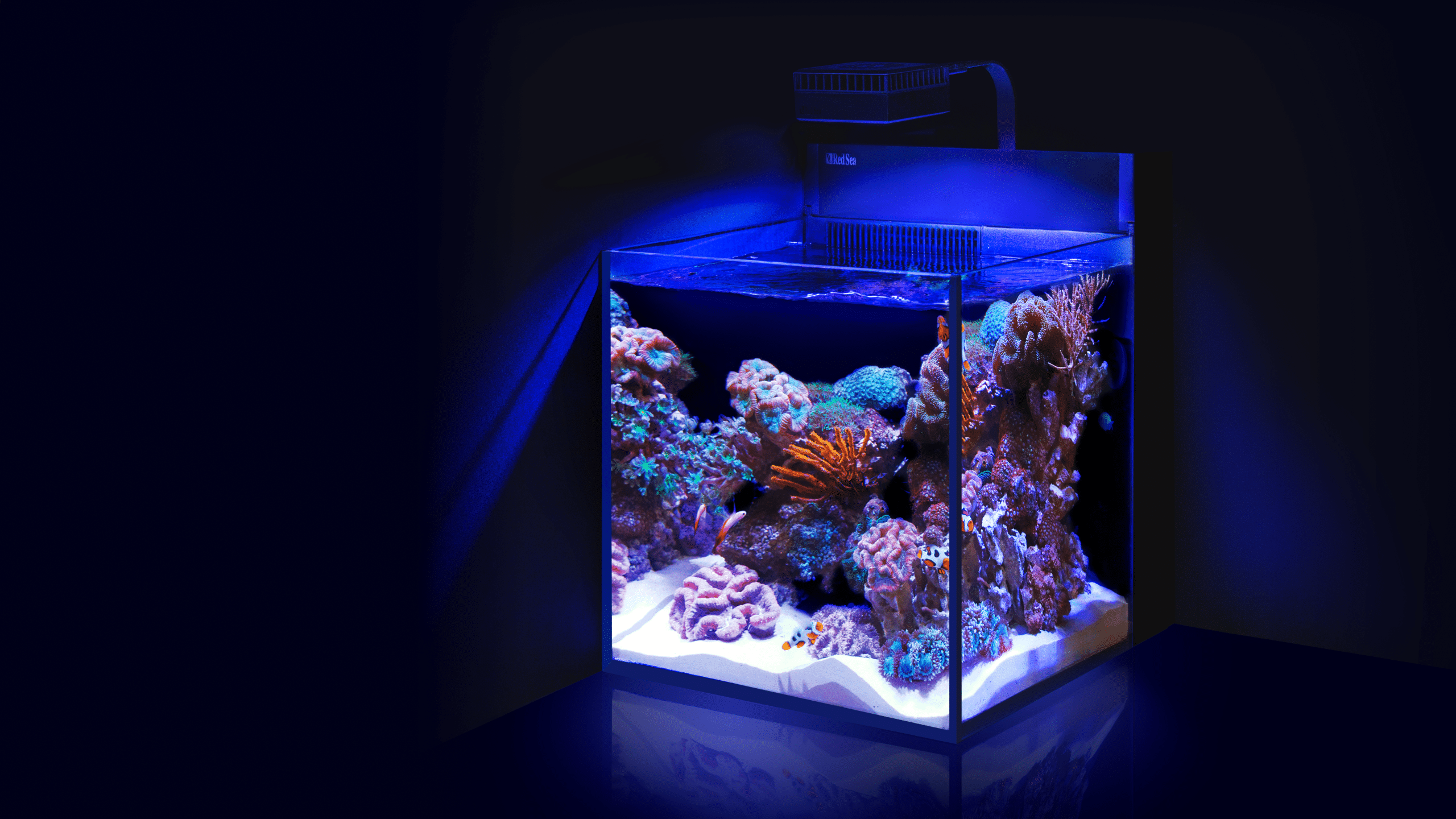Extreme Corals News and Updates
Trying to decide between a Large vs Small vs Nano Reef?
Determining which reef tank to purchase can be difficult for many reasons. One of those reasons is the variety of sizes across the market. Each coming with it's on pros and cons.
Reef tanks come in so many different sizes and now Nano Tanks have taken over for new hobbyists. Is a Nano Tank right for you and your newly purchased Live Corals?
by scott Shiles • April 21, 2023
Reef tanks have become increasingly popular over the years, providing hobbyists with the opportunity to create a beautiful and thriving underwater world. When considering setting up a reef tank, one of the biggest decisions is deciding on the tank size. Three popular sizes are the large reef tank, small reef tank, and nano reef tank, each with their own unique advantages and challenges.

Photo Courtesy of @bayarea_reef on Instagram
Large Reef Tank
A large reef tank is typically considered to be 75 gallons or more. The biggest advantage of a large reef tank is the amount of space it provides for coral, fish, and other marine life to thrive. This increased space also allows for a wider variety of species to be kept together, creating a more diverse and visually stunning ecosystem. Another advantage of a large reef tank is that it is typically more stable than smaller tanks, making it easier to maintain water chemistry and temperature.
There are some hurdles to overcome with maintaining a large reef tank. The initial cost of setting up a large tank can be quite high, and ongoing maintenance costs can also be significant. The size of the tank can also make it more difficult to clean, and larger amounts of water can lead to more evaporation, requiring more frequent top-offs.

Photo featuring Reefkeeping Magazine Tank of the Month winner from Aug. 2014
Small Reef Tank
A small reef tank is typically considered to be between 20 and 75 gallons. The biggest advantage of a small reef tank is that it is generally more affordable and easier to set up than a larger tank. It also takes up less space, making it ideal for hobbyists who may not have a lot of room to spare. Additionally, because it requires less water and space, it is often easier to maintain consistent water quality.
One of the biggest challenges with a small reef tank is that there is less space for marine life to thrive, which limits the variety of species that can be kept. Additionally, because the tank is smaller, it can be more susceptible to changes in water chemistry and temperature, which can be detrimental to the health of the tank's inhabitants.

Red Sea Max Nano Cube
Nano Reef Tank
A nano reef tank is typically considered to be less than 20 gallons. The biggest advantage of a nano reef tank is its affordability and compact size. It can be a great option for hobbyists who are new to reef keeping, have limited space, or have a limited budget. Additionally, it can be a fun challenge to create a thriving ecosystem in such a small space.
There are significant challenges with maintaining a nano reef tank. The small size of the tank means that there is very little margin for error when it comes to water quality and temperature. Even small fluctuations can have a major impact on the health of the tank's inhabitants. Additionally, there is very limited space for marine life, so it can be difficult to create a diverse ecosystem.
Each size of reef tank has its own advantages and challenges, and the choice ultimately depends on the needs and preferences of the hobbyist. Large reef tanks offer a visually stunning and diverse ecosystem, but require significant resources and maintenance. Small reef tanks are more affordable and easier to maintain, but limit the variety of species that can be kept. Nano reef tanks offer a fun challenge and are compact and affordable, but require very precise water management and have limited space for marine life.

